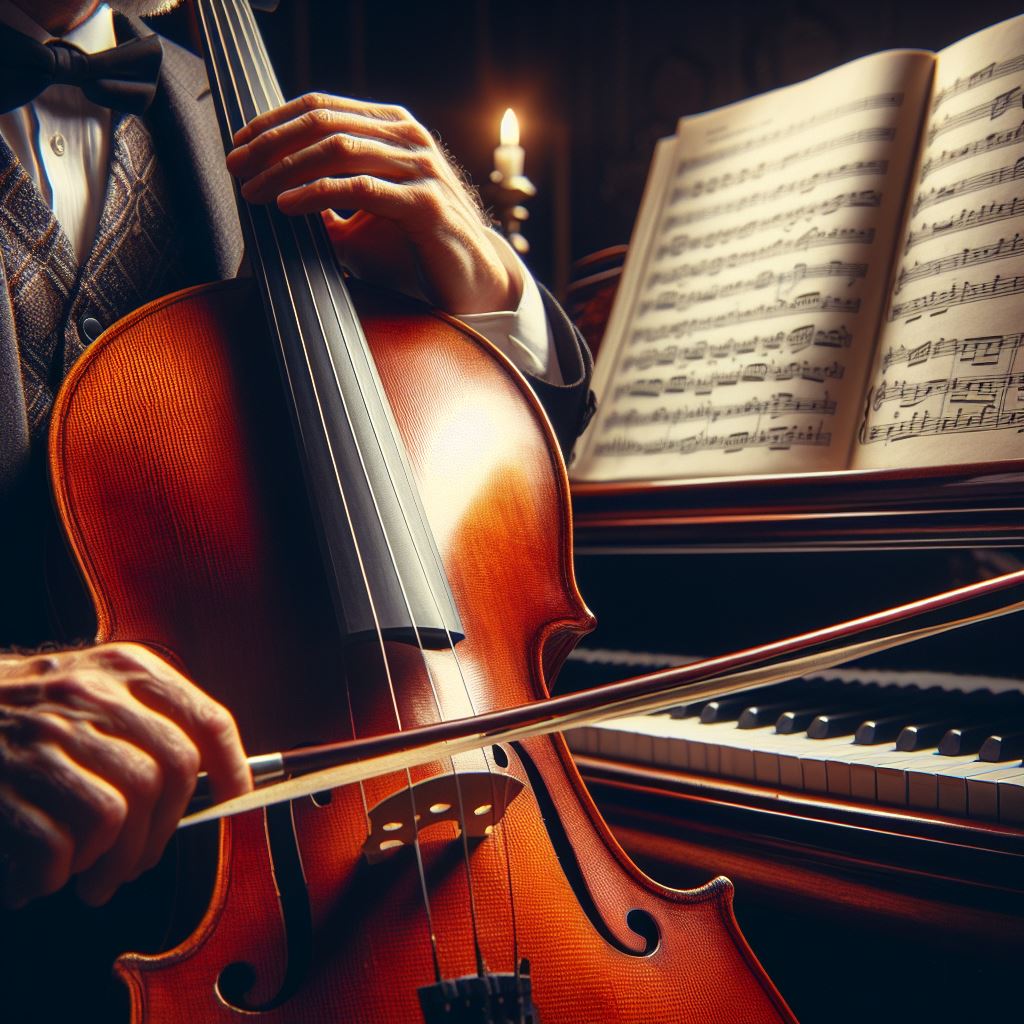Music is timeless. Among its many genres, classical music holds a treasure trove of pieces that have enchanted audiences for centuries. However, not all that was composed has found its way into the standard repertoire. Over time, countless compositions have slipped into obscurity, their notes silently gathering dust. But all is not lost. A quiet revolution is underway, led by dedicated musicians and scholars who are committed to unearthing and breathing life into these forgotten masterpieces.
The Quest for Lost Treasures
The revival of classical music embodies an adventurous spirit akin to that of a musical archaeologist delving into archives, libraries, and private collections. In this pursuit lie the treasures of forgotten compositions by renowned composers and the hidden works of lesser-known musical geniuses. Among the remarkable discoveries is the unearthing of Vivaldi’s lost operas, a composer long celebrated for iconic works like “The Four Seasons”. Through meticulous research, these operatic gems have been resurrected, shedding new light on Vivaldi’s diverse oeuvre. The quest for lost treasures extends beyond Vivaldi, encompassing a myriad of composers whose works have languished in obscurity. Each find enriches our understanding of musical history and broadens the repertoire available to contemporary performers and audiences alike. Uncovering these musical treasures is as exhilarating as the discoveries themselves, fueling the passion of musicians and scholars dedicated to preserving and revitalizing classical music traditions. As these lost compositions resurface, they weave new narratives into the tapestry of classical music, ensuring that the legacy of these composers endures for generations to come.
Spotlight on Forgotten Composers

Exploring the depths of classical music has illuminated the works of composers who once held prominence but faded into obscurity over time. Among them is Johann Nepomuk Hummel, a contemporary of Beethoven renowned for his virtuosic piano skills. Despite enjoying immense popularity during his era, Hummel’s compositions fell out of favor in subsequent years. However, his concertos and chamber music, characterized by lyrical beauty and technical brilliance, are experiencing a revival on concert stages, captivating audiences anew.
Another significant figure is Florence Price, recognized as the first African American woman to have her music performed by a major orchestra. Despite her groundbreaking achievements, Price’s compositions languished in neglect for decades. Today, owing to dedicated advocacy and scholarly efforts, Price’s symphonies and chamber works are receiving the recognition they rightfully deserve. Performances and recordings of her music contribute to a more inclusive and diverse representation within the classical music canon.
The resurgence of composers like Hummel and Price underscores the importance of revisiting musical history and reclaiming the contributions of marginalized voices. As their works resurface, they enrich our understanding of the classical tradition while inspiring contemporary musicians and audiences alike. By shining a spotlight on forgotten composers, we reaffirm their enduring relevance and ensure that their artistic legacies endure for generations to come.
Unearthing the Music
The search for forgotten music is not for the faint-hearted. It involves deciphering handwritten scores, sometimes in poor condition, and interpreting notation that may not conform to modern standards. Musicians and researchers sometimes spend years on a single piece, ensuring its faithful restoration.
After the painstaking process of discovery and restoration, these works face another challenge: acceptance by the public and the musical community. Musicians who champion these pieces often arrange performances and recordings, sometimes funding these projects out of their own pockets. It’s a labor of love, driven by the belief in the inherent value of these musical gems.
The Impact of Technology
The resurgence of classical music owes much to technological advancements. Digital collections and online archives have revolutionized access to manuscripts, previously scattered across the globe. These resources enable researchers to delve into archives with unprecedented ease, accelerating the pace of discovery. Moreover, social media and streaming platforms serve as invaluable conduits for sharing newfound compositions with a global audience. Through platforms like YouTube and Spotify, obscure works are brought to light, enriching classical music.
In addition, the rise of online communities dedicated to classical music has fostered a vibrant culture of exploration and discussion. Forums and social media groups provide platforms for enthusiasts to exchange insights, recordings, and interpretations of forgotten pieces. This collective engagement amplifies the impact of each discovery, igniting passion and curiosity among both seasoned aficionados and newcomers alike.
The symbiotic relationship between technology and classical music is transformative, democratizing access to musical heritage while invigorating the genre with fresh perspectives. As digital tools continue to evolve, so too does the potential for unearthing and celebrating hidden treasures within the classical repertoire. Technology serves as a catalyst for the continued revitalization and appreciation of classical music across the globe.
From Obscurity to the Concert Hall
Bringing forgotten musical compositions back to life marks only the initial step in their journey. The true measure of their significance lies in the reception they garner from audiences and musicians alike. Fortunately, many of these rediscovered works have been met with resounding enthusiasm and acclaim.
Consider the baroque compositions of composers such as Johann Rosenmüller and Philipp Heinrich Erlebach. Their works, once consigned to obscurity, have experienced a resurgence in popularity among both early music specialists and contemporary audiences. Renowned for their expressive depth and beauty, these compositions offer a captivating glimpse into musical history.
Orchestras, chamber ensembles, and soloists that embrace these pieces not only expand their own repertoire but also contribute to the enrichment of the broader musical landscape. Through live performances and recordings, they offer audiences a profound connection to the past while infusing it with contemporary vitality. These interpretations serve as more than mere entertainment; they serve as bridges that span across time, linking the artistic visions of bygone eras with the sensibilities of the present.
In celebrating the diversity and richness of musical heritage, these performances remind us of the enduring power of music to transcend boundaries and resonate across generations. They reaffirm music’s timeless ability to inspire, evoke emotion, and foster a shared sense of humanity in an ever-changing world.
Unearthing Musical Legacies for Modern Audiences
The revival of forgotten classical music is an ongoing journey, a narrative still being written by the passionate individuals dedicated to unearthing and sharing these treasures. Each discovery adds a new color to the rich tapestry of music history, challenging our perceptions and broadening our understanding of what classical music can be.
As audiences, we play a crucial role in this revival. By supporting performances and recordings of rediscovered works, we participate in a movement that not only honors the past but also paves the way for future discoveries. In embracing these forgotten masterpieces, we ensure that the legacy of classical music, in all its diversity and splendor, continues to inspire and move generations to come.
The journey into the hidden recesses of classical music reveals a world far richer and more varied than we might have imagined. As we continue to explore and champion these forgotten gems, we contribute to a vibrant, living tradition that transcends time and place, reminding us of the transformative power of music to touch the soul. Let us keep listening, with open ears and hearts, ready to be surprised and delighted by the treasures that await.
